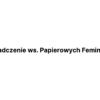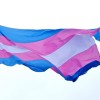Feministyczne spojrzenia na militaryzm / Feminism and Militarism
*** For English please scroll down ***
Polskie Towarzystwo Genderowe we współpracy z Fundacją im. Friedricha Eberta, Instytutem Kultury Polskiej UW i Ośrodkiem Studiów Amerykańskich UW mają przyjemność zaprosić na wydarzenie:
Feministyczne spojrzenia na militaryzm
Po zakończeniu II wojny światowej i końcu zimnej wojny kraje europejskie rozpoczęły swoją wyjątkową podróż w stronę społeczeństw post-militarnych. Choć większość krajów w Europie zachowała stałe wojska, społeczna rola wojska i jego obecość w sferze cywilnej istotnie osłabły. Schyłek klasycznego militaryzmu połączony z demokratycznymi zmianami w krajach post-komunistycznych napełniły wielu optymizmem co do przyszłości pokoju w Europie czasu „końca historii”. Badaczki feministyczne były dużo bardziej sceptyczne co do perspektyw trwałego pokoju i demilitaryzacji. Mając bardziej mikrosocjologiczne spojrzenie na militaryzację, którą postrzegały jako proces przemieniający ludzi i rzeczy, feministki pozostały uważne na subtelne przejawy militaryzmu w czasie pokoju. Ostrzegały też, że trwałość innych form przemocy strukturalnej sprawia, że uśpiony militaryzm może powrócić. W Europie Środkowej po konflikcie ukraińskim i kryzysie uchodźczym, gdzie obserwujemy dziś wzrost wydatków na wojsko, militaryzację granic, eksplozję pamięci II wojny światowej i wzrost sektora paramilitarnego, te dyskusje są szczególnie istotne. Czerpiąc z socjologicznej tradycji niewartościującego definiowania militaryzmu jako modelu organizacji społecznej cechującej się penetracją sfery społecznej przez sferę militarną, jednodniowe wydarzenie przybliży polskiej publiczności feministyczne dyskusje nad militaryzmem, wojnami i ich pamięcią.
PROGRAM
15:30 – 15:45 / Powitalna kawa
15.45 – 16.00 / Otwarcie wydarzenia przez organizatorów
16.00 – 17.30 / Remilitaryzacja Europy? Feministyczne ujęcia
Ayşe Gül Altınay, Uniwersytet Sabancı
Militarism, Feminism, and Academia: Challenges of Demilitarizing Scholarship
Andrea Pető, Uniwersytet Środkowoeuropejski
Gendering the History of the 1956 Hungarian Revolution: Militarism Pacified
Moderacja: Weronika Grzebalska, Polska Akademia Nauk
Pytania i dyskusja
17.30 – 18.00 / Przerwa kawowa
18.00 – 19.30 / Dyskusja o książce Gendered Wars, Gendered Memories: Feminist Conversations on War, Genocide and Political Violence (red. Ayşe Gül Altınay i Andrea Pető, Routledge, 2016)
Ayşe Gül Altınay, Uniwersytet Sabancı
Andrea Pető, Uniwersytet Środkowoeuropejski
Dobrochna Kałwa, Uniwersytet Warszawski
Sarah Sigmund, Uniwersytet Heinricha Heinego
Moderacja: Karolina Krasuska, Uniwersytet Warszawski
Pytania i dyskusja
Spotkanie prowadzone będzie w języku angielskim z tłumaczeniem symultanicznym na język polski
Prosimy o potwierdzenie uczestnictwa do 25 maja na adres biuro@feswar.org.pl
**************************
Polish Gender Studies Association together with Friedrich Ebert Foundation, Institute of Polish Culture and American Studies Center have the pleasure of inviting you to the event:
Feminist Perspectives on Militarism
In the aftermath of World War II and with the end of the Cold War, European states have begun their exceptional journey towards post-military societies. While most countries have retained standing armies, across Europe the social role of the military and its intrusion into the civilian realm have been significantly weakened. The decline of classical militarism coupled with democratic changes in post-communist states have imbued many with optimism about the future of peace in Europe at the “end of history”. Feminists have generally been more skeptical about the prospects for durable peace and demilitarization. Having a more micro-sociological perspective on militarization which they saw as a process transforming things and people, feminists have stayed alert to subtle displays of militarism in peacetime. They have also warned that the endurance of other forms of structural violence makes dormant militarism more probable to resurface. In Central Europe after the Ukraine war and the Refugee Crisis, these discussions are especially relevant as we observe increases in military spending, militarization of borders, proliferation of World War II memory politics, and rise of paramilitary groups. Drawing from the sociological tradition of defining militarism not as a matter of good or bad but a form of social organization characterized by the penetration of social relations by military relations, the one day event will reflect on feminist perspectives on militarism, wars and their memory from different angles.
PROGRAM
15:30 – 15:45 / Welcome coffee
15.45 – 16.00 / Opening by organizers
16.00 – 17.30 / Remilitarization of Europe? Feminist Perspectives
Ayşe Gül Altınay, Sabancı University
Militarism, Feminism and Academia: Challenges of Demilitarizing Scholarship
Andrea Pető, Central European University
Gendering the History of the 1956 Hungarian Revolution: Militarism Pacified
Chair: Weronika Grzebalska, Polish Academy of Sciences
Questions and Discussion
17.30 – 18.00 / Coffee Break
18.00 – 19.30 / Discussion of Gendered Wars, Gendered Memories: Feminist Conversations on War, Genocide and Political Violence (eds. Ayşe Gül Altınay & Andrea Pető, Routledge, 2016)
Andrea Pető, Central European University
Ayşe Gül Altınay, Sabancı University
Dobrochna Kałwa, Institute of History, University of Warsaw
Sarah Sigmund, Heinrich-Heine-University
Chair: Karolina Krasuska, American Studies Center, University of Warsaw
Questions and Discussion
The event will be in English with simultaneous translation into Polish.
Please confirm your participation via email to biuro@feswar.org.pl






 Ładuję…
Ładuję…

